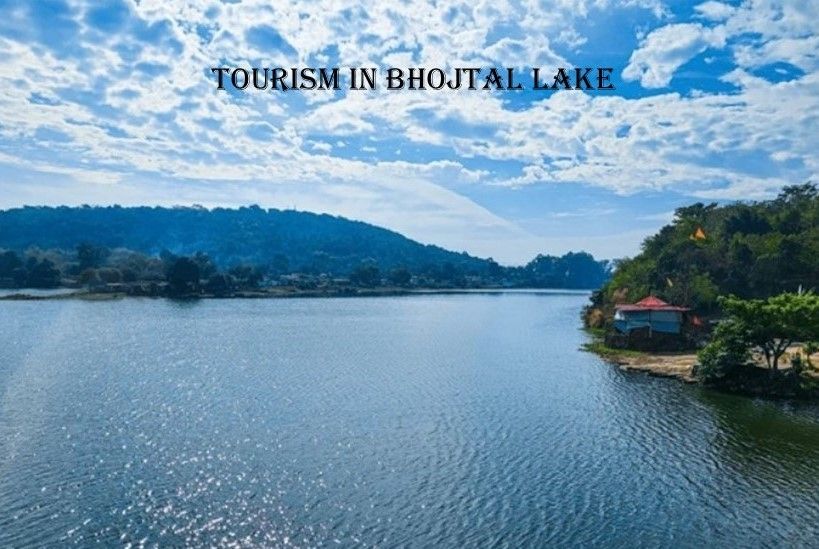
Bhojtal Lake, formerly known as Upper Lake or Bada Talab, is one of the most iconic landmarks of Bhopal, Madhya Pradesh. This vast, serene water body is not only a lifeline for the city’s residents but also a magnet for tourists seeking nature, history, and adventure. With its rich cultural heritage, ecological significance, and recreational offerings, Bhojtal Lake stands as a testament to the harmonious blend of utility and beauty.
Historical Significance
The origins of Bhojtal Lake trace back to the 11th century, when it was constructed by the legendary Paramara king Raja Bhoj. According to folklore, the king suffered from a severe skin disease that no physician could cure. A saint advised him to bathe in a tank formed by the confluence of 365 tributaries. Raja Bhoj’s engineers found a suitable site near the Betwa River, but only 359 tributaries were identified. A Gond commander named Kalia helped locate the remaining ones, and the lake was finally built by damming the Kolans River.
This massive reservoir not only cured the king but also laid the foundation for the city of Bhopal, originally called Bhojpal. In 2011, the lake was renamed Bhojtal to honor Raja Bhoj, and a grand statue of the king was erected on its banks, symbolizing his enduring legacy.
Geography and Ecology
Located on the western side of Bhopal, Bhojtal Lake spans an area of approximately 31 square kilometers. It is bordered by Van Vihar National Park to the south, urban settlements to the east and north, and agricultural fields to the west. The lake’s watershed is predominantly rural, with some urban development near its eastern edge. The Kolans River, once a tributary of the Halali River, now drains into the Kaliasote River due to the lake’s construction.
Bhojtal is a vital ecological zone and part of the Bhoj Wetland, a designated Ramsar site. It supports a rich biodiversity, including aquatic life, migratory birds, and native flora and fauna. The lake’s pristine waters and surrounding greenery make it a haven for nature lovers and conservationists alike.
Lifeline of Bhopal
Beyond its scenic charm, Bhojtal Lake plays a crucial role in sustaining Bhopal’s population. It supplies drinking water to nearly 40% of the city’s residents, amounting to around 30 million imperial gallons daily. The lake also supports irrigation and the cultivation of water chestnuts, contributing to the local economy and food supply.
Things to Do: Adventure and Leisure
Bhojtal Lake is a hub for recreational activities and eco-tourism. The eastern shore hosts the National Sailing Club, India’s first sailing club, offering a range of water sports such as:
- Boating and sailing
- Kayaking and canoeing
- Rafting and water skiing
- Parasailing
These activities attract both domestic and international tourists, making Bhojtal a vibrant destination for adventure seekers.
Van Vihar National Park
Adjacent to the lake is Van Vihar National Park, a protected area that enhances Bhojtal ecological and tourism value. The park is home to:
- Over 200 species of birds, including migratory and native varieties
- 60 species of butterflies
- Majestic animals like Royal Bengal Tigers, leopards, lions, sloth bears, and hyenas
- Aquatic reptiles such as gharial, crocodiles, and tortoises
Visitors can enjoy a unique experience as they drive through the park, with wildlife on one side and the tranquil lake on the other.
Birdwatching Paradise
Bhojtal Lake is a sanctuary for bird enthusiasts. Common sightings include:
- White stork
- Black-necked stork
- Bar-headed goose
- Spoonbill
- Cranes, which are especially abundant
The lake’s diverse avian population makes it a prime spot for photography and birdwatching, especially during migratory seasons.
Religious and Cultural Importance
The lake holds deep religious and cultural significance for the people of Bhopal. During festivals, idols of Hindu deities are immersed in its waters, symbolizing spiritual purification. Takia Island, located within the lake, houses the tomb of Shah Ali Shah Rahamatullah Alla, adding archaeological and religious value to the site.
How to Reach Bhojtal Lake
Bhojtal Lake is easily accessible:
- Nearest Railway Station: Bhopal Junction
- Nearest Airport: Raja Bhoj Airport (Bhopal International Airport)
Local transport options like taxis, auto-rickshaws, and buses make commuting to the lake convenient for tourists and residents alike.
Tips for Visitors
- Carry sunscreen, water, and a hat during hot days
- Respect local wildlife and avoid littering
- Check weather forecasts to avoid visiting during monsoon
- Carry valid ID for renting water sports equipment
Bhojtal Lake is more than just A Tourist Attraction it’s a living legacy of history, a cradle of biodiversity, and a vital resource for the city of Bhopal. Whether you're drawn by its tranquil waters, thrilling adventures, or cultural depth, Bhojtal offers a multifaceted experience that leaves a lasting impression.